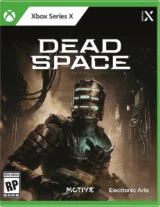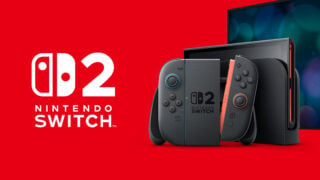15 US child advocacy groups have asked the FTC to investigate EA over loot boxes
The coalition want a judgement on whether the FIFA series “engages in unfair and deceptive practices”

An alliance of 15 child advocacy groups in the US have asked the Federal Trade Commission (FTC) to investigate Electronic Arts over its use of loot boxes, especially in FIFA.
The coalition, led by Fairplay and the Center for Digital Democracy (CDD), cited this week’s report by the Norwegian Consumer Council (NCC) as grounds for investigation over whether EA‘s sale of loot boxes “unfairly exploits children and teens for profit”.
As reported by Axios, the coalition has written an open letter to the FTC which details the issues raised in the NCC’s previous report, pointing out specific issues which it feels are harmful to children.
“Fairplay and CDD have highlighted problems with virtual currencies, loot boxes, and other manipulative design techniques in past comments submitted to the Commission on dark patterns,” the letter says.
“Dark patterns exploit kids’ and teens’ developmental vulnerabilities, including their fear of missing out, esteem needs, and sense of social pressure.
“They also place young people on an endless treadmill of game play, all while obscuring game play costs with virtual currency. We urge the Commission to investigate the use of dark patterns in FUT.
The group also express their concern that loot boxes, including those in FIFA, “introduce kids and teens to gambling”.
“The packs resemble slot machines,” the letter reads. “They require a game player to stake something of value (in-game currency) on the possibility of receiving an unknown, random reward in the future, and are accompanied by bright colours and animations.
“Research shows that there are connections between spending money on loot boxes and problem gambling in adolescents. In some cases, young people who have already developed problem gambling behaviors seek out games with loot boxes – for others, loot boxes are a gateway to problem gambling.
“EA may insist that the majority of game players do not spend money in FUT, but the video game industry makes large amounts of money off of big-spending ‘whales’.”

The letter, which is co-signed by Fairplay, the CDD and 13 other advocacy groups including the National Council on Problem Gambling, Truth in Advertising and the Institute of Digital Media and Child Development, asks the FTC to seek the answers to 10 questions:
- How many children ages 6-9 and 9-12 play FUT? How many teenagers? What steps, if any, does EA take to verify the ages of players, or to prevent children under age 13 from playing the live version of the game or purchasing loot boxes?
- What percentage of children and teenagers playing FUT pay for points? How much revenue does EA earn from child and teenage FUT players?
- Are the design and marketing techniques EA uses in FUT, such as its use of virtual currencies and the way it artificially generates demand by offering “special” packs, dark patterns that mislead or take unfair advantage of FUT players?
- Does EA provide accurate statistics on FIFA player packs?
- What does it mean that FIFA packs are “dynamically generated? Does EA use data-driven techniques to manipulate game players’ odds of receiving certain player cards? Relatedly, does EA use the data it collects about young people’s favorite teams and players and spending habits to market FIFA packs to individual game players? Are packs marketed more frequently and aggressively to “whales?”
- Does EA offer popular video game streamers better odds of opening coveted rewards if they agree to stream themselves playing FUT?
- Is marketing FUT for a cost of $50-$100 deceptive to children and teens when spending money in the game on packs is essential to compete successfully with friends?
- Are EA’s representations about FIFA packs and points likely to be misleading from the perspective of a 9-year-old? A 13-year-old? A 15-year-old? Are children at these ages likely to understand the complex statistical probability of receiving a highly coveted card? Are children at these ages likely to understand the cost of FIFA packs in real money, given EA’s virtual currency system obscures the true cost?
- Does FUT’s random rewards system indoctrinate children into gambling behaviors? Does it harm children who are already more vulnerable to problem gambling behavior?
- Has EA ever conducted or reviewed research on whether its games promote gambling to young people?
Earlier this week, 20 consumer groups from 18 European countries launched a coordinated action asking authorities to pass regulations on loot boxes.
The action was based on a report from the NCC – which is also cited and included in full in Fairplay and the CDD’s open letter – entitled “Insert Coin: How the Gaming Industry Exploits Consumers Using Loot Boxes”.
The report accuses companies of exploiting consumers by using mechanisms that it claims are “predatory” and “fostering addiction”.
The NCC’s 59-page document uses FIFA 22 and Raid: Shadow Legends as case studies, claiming: “Both games employ a wide arsenal of tricks to push consumers into spending as much time and money as possible exploiting consumers [who] hope to receive the reward despite a miniscule chance and likelihood to do so.”















